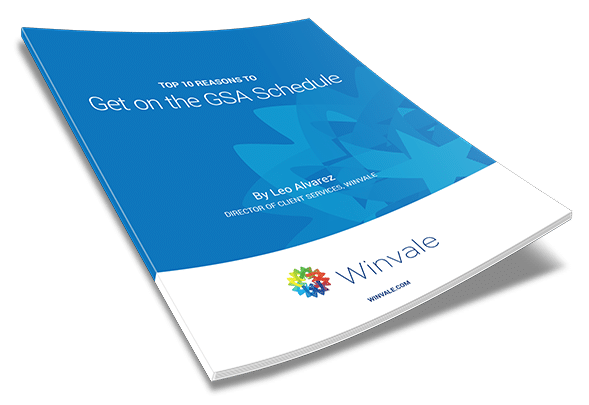Winvale Blog
The latest insights for government contracting success, GSA Schedule assistance, & IT Manufacturer support.

By:
Stephanie Hagan
October 26th, 2023
If you have a government contract such as the GSA Multiple Award Schedule (MAS), or are thinking about getting one, good cyber hygiene is key. Of course, every company wants to avoid cyber attacks and hacking, but it’s important when you are selling to the federal government to have certain practices in place to proactively safeguard your network.

By:
Stephanie Hagan
August 30th, 2023
The Department of Defense (DoD) and the Office of Management and Budget (OMB) are expecting the release of a proposed Cybersecurity Maturity Model Certification (CMMC) rule in September 2023. This rule was originally expected earlier this summer, but once released will set the framework for CMMC. Since this rule has been highly anticipated, let’s cover what you can expect over the next few months and how you can prepare for the implementation of CMMC.

Do you know what the real benefits of being on the GSA Schedule are? Learn the top 10 reasons (and advantages) why you should consider it.

By:
Patrick Morgans
May 24th, 2023
We live in an increasingly digitally connected age, and the federal government is no exception. If your business is in the Information Technology (IT) field, you may be leaving money on the table if you are not actively marketing your products and services to the federal government. While often thought of as out of date in terms of its technology, it’s worth noting that the federal government spends billions on new IT hardware, software, solutions, and services every year. Not only that, but it is also increasing its expenditures in an attempt to create a more connected and secure federal cyber infrastructure.

By:
Marissa Sims
February 22nd, 2023
As a government contractor, you have to stay vigilant about certain regulations so you are staying within the guidelines of the federal government. However, it’s not always an easy guidebook to follow. Some contractors are subject to additional policies if they handle certain types of information. If you are a government contractor within the Defense Industrial Base (DIB), or you handle Controlled Unclassified Information (CUI), there are certain regulations and clauses you have to follow. Here’s what you need to know about the security requirements for safeguarding CUI.

By:
Elizabeth Mordica
February 15th, 2023
While we are welcoming 2023, there are some aspects following us into the New Year. 2023 is not only the the year of the rabbit, but also the years of major IT Government-Wide Acquisition Contracts (GWACs). The Information Technology (IT) community has been tracking major solicitations as they sit in protest purgatory or as they are in process of releasing draft and final Request for Proposals (RFPs). Let’s go through these opportunities and their journey into 2023.

By:
Lillian Bohan
December 14th, 2022
Once you are awarded a GSA Schedule contract, you are granted access to many platforms and resources to assist in growing your company’s presence in the public sector. As a GSA Schedule contractor, websites like SAM.gov, GSA Advantage!, GSA eLibrary, and more become important assets for success in the federal market. The issue is contractors and government buyers aren’t the only ones that see these resources as valuable. While these sites are crucial for contractors, it also makes their company highly visible with non-confidential information such as email address, numbers, address, and therefore susceptible to a cybersecurity breach.
Copyright Winvale | All Rights Reserved